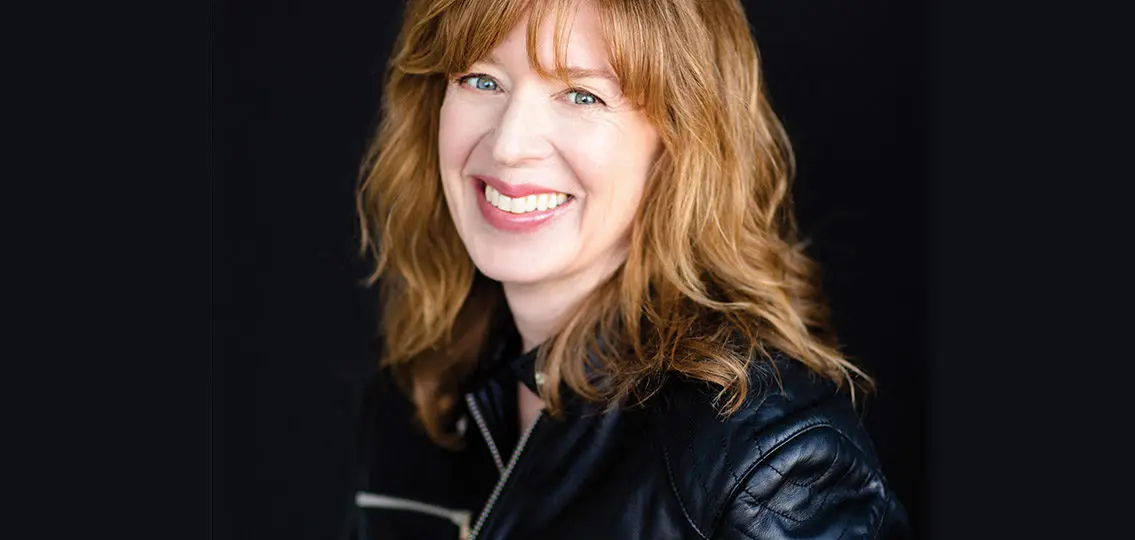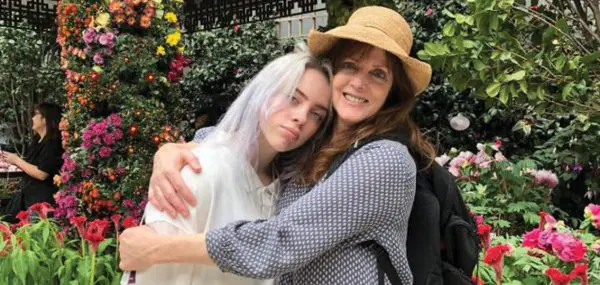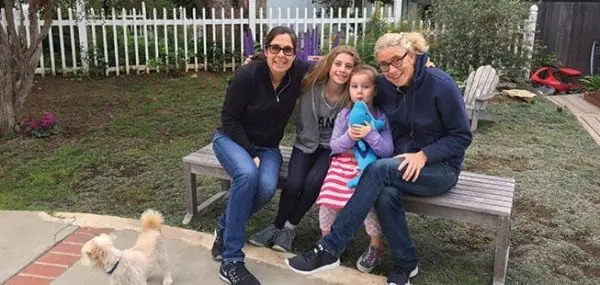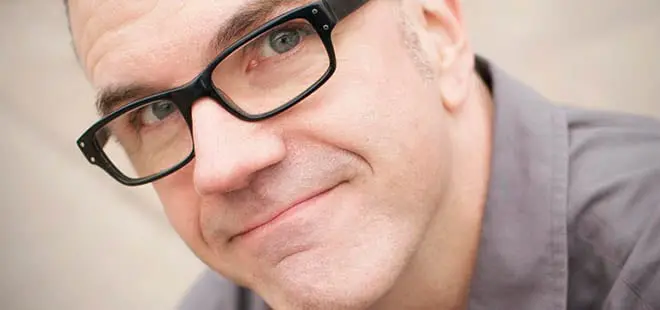Nancy Davis Kho is a writer who chronicles “the years between being hip and breaking one” on her Midlife Mixtape blog and podcast. Her work has also appeared in The Washington Post, the San Francisco Chronicle, The Rumpus, and elsewhere. We spoke with her about her debut book, The Thank-You Project: Cultivating Happiness One Letter of Gratitude at a Time. She shared what she learned and how it can help during our current stressful times.
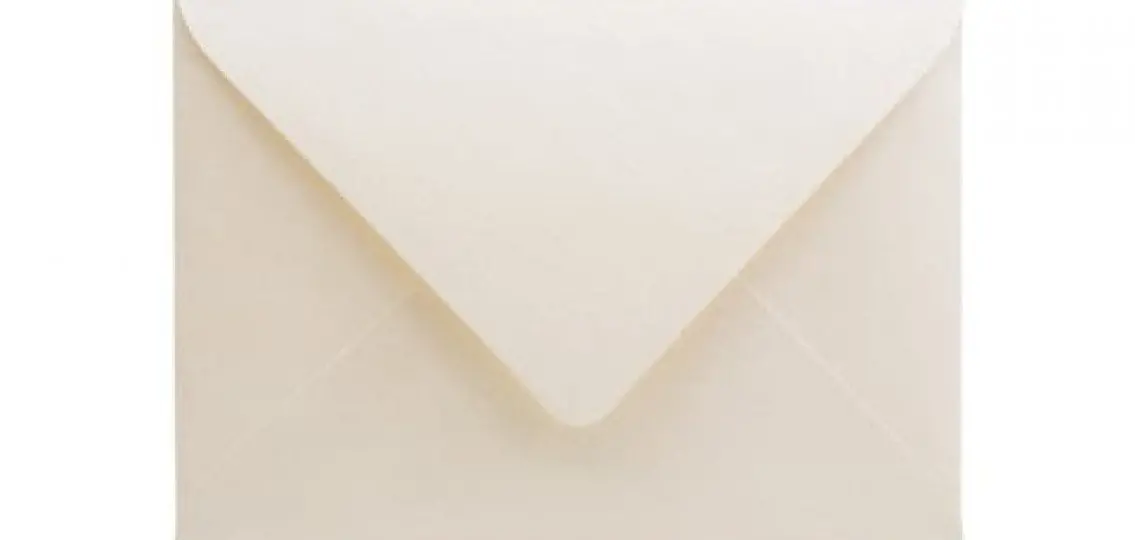
Q: Your decision to write 50 gratitude letters was prompted by turning 50—obviously a milestone year. Were there any unexpected results?
Davis Kho: So many of them! I wrote those letters three and a half years ago, and it really changed how I look at people around me. It made it much easier for me to look at a negative situation and find the positive. Not always, but at least I know to look. And it strengthened my relationships, because people were so touched to see what I’d written. I would get a letter back, or someone would say to me “That meant so much to me.” It really made me feel good about the quality of the relationships I’ve maintained. At first, I thought I’d write the letters and that would be the end of it. But I quickly realized that the process of writing gratitude letters brought me peace.
Q: Your book opens with a poignant scene of you sitting at your father’s desk, gazing at the letter you wrote to him, as you prepare to write his eulogy.
Davis Kho: After I sent that letter, he had a good six months when he could read it and absorb it. He framed it and put it over his desk so he could see it every day. And then, suddenly, he was gone. I was shocked at the speed with which we lost my dad, but the one comfort I had was that he knew how I felt about him. I didn’t have to wonder if he knew: He knew, he absolutely did.
Q: Tell me about your process and what you learned about the science of gratitude.
Davis Kho: For each letter, I’d spend a week thinking about the person and figuring out what I wanted to say. Just that process is its own exercise in positive recall bias. It strengthens the neural pathways and makes your brain more efficient at looking for positive things. It’s a really nice way to take stock of the people around you and what value they bring to your life. Even if you never pick up a pen, just thinking about who these people are in your life can give you that enhanced positive recall bias.
Q: What about what happens when the recipient reads what you wrote?
Davis Kho: Your job is not to worry about what somebody says when they get the letter. You don’t control people’s reactions. Your job is to write the letter, and that’s it! You get all those juicy happiness-building benefits in the writing. When the recipient gets it and loves it and tells you, that’s the cherry on top—that’s terrific, but it doesn’t take away from your own process.
Q: As part of your project, you wrote to your two daughters, who were 15 and 18 at the time. How did you approach those letters?
Davis Kho: The rubric I used for all the letters was “How did you help, shape, or inspire me?” We think all the time about how we shape our kids and inspire them, but we’re not given a lot of opportunities to sit back and say, “When have they done that for me?”
As an example, my younger daughter, who is the hardest working girl, said to me once, “Sometimes it takes me a while to get an answer, but I know I’m a creative thinker. And if I just keep trying different ways to get to an answer, I’ll find my way there.” And that example of perseverance and self-confidence was such a helpful lesson to me, as someone who makes a living as a writer. Those are exactly the things you need in order to withstand the rejection that’s just part of this job.
Q: How did your daughters respond?
Davis Kho: My older daughter was away at college at the time and sent me a very sweet thank you by text. My younger daughter was busy with school and had a more muted response. My hope is that the letter is something she can look back on to remind herself that I see that creativity, tenacity, and intelligence in her and that I was really grateful for these traits of hers.
I think there are probably a lot of teenagers who would react the same way, maybe not giving the parents that warm fuzzy they’re looking for. But that’s a good reminder. This is about thinking about people who make your life better and really reflecting on how they impact you. Even when you get a muted response, you get just as much benefit from writing the letters.
Also, our kids are not used to analog communication—everything disappears after five seconds. You’re creating a written record of their strengths, their gifts, their talents. And that letter can go in a desktop or a pocket or a backpack, to be pulled out and referred to again and again. And that’s different from how they communicate in any other aspect of their lives.
Q: How else do you see this being relevant for teens?
Davis Kho: My high school best friend Lisa is an eighth-grade teacher. She asked me to give a Zoom presentation last spring with her graduating students as part of their end-of-year ritual. I read them the letter I’d written to Lisa, and we talked about the process—about thinking about people who help, shape, and inspire us. Their assignment was to write a thank you letter to someone who’d been important to them. She sent me the highlights and they were beautiful!
One was a boy who’d written to another boy about how he’d never forget how that boy had helped him when they first arrived at the school, and how he’d given him the confidence to be more outgoing and make new friends. Then Lisa asked the kids to reflect on the exercise and write a paragraph to send to me. One kid said, “I wrote to my little brother. He’s so annoying, but by the time I finished the letter I just wanted to give him a hug.”
Q: How else do you suggest cultivating a gratitude mindset, especially now?
Davis Kho: I think we’re in the midst of a universal existential crisis: We’re all trying to understand what matters, and we’re being reminded of the vulnerability in our lives. When I start getting stressed and anxious, I think: “Who can I write to?” Writing a letter is an opportunity to let someone know they’re important in my life. And there’s never a bad time to tell someone that.

We’re all feeling so isolated. We can’t get out to see our friends and be around people who make us laugh and make us feel good about ourselves. But we can still send a letter to those people in the mail and receive a letter like that. It’s such a gift, and it takes us out of the moment. For me, it’s a reminder: Even though I’m stuck in my house for months, I’m not alone.
